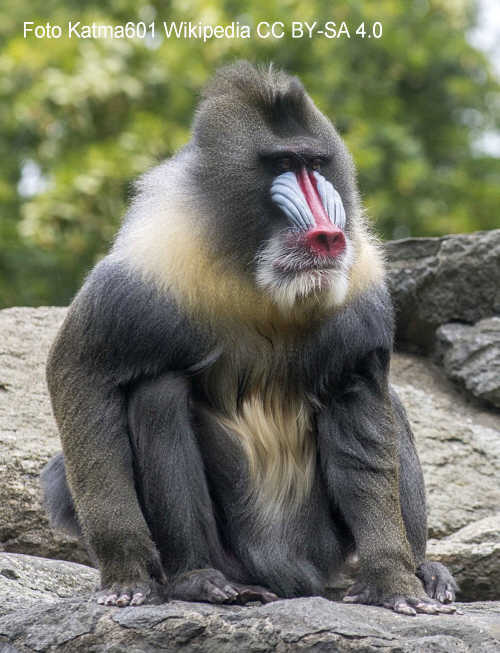Mandrill (Mandrillus sphinx)
description of the animal

Appearance
The mandrill is one of the largest and most colorful species of monkeys. They are recognized by their distinctive facial and rump coloring, which includes blue and red skin and a unique pattern of stripes and spots. Mandrills have powerful bodies, long arms, and short tails.
Distribution
Mandrills are found in the tropical rainforests and occasionally in the adjacent savannas of western central Africa, particularly in countries like Gabon, Cameroon, Congo, and Equatorial Guinea.
Habitat
They primarily inhabit dense forests and are adapted to a life both in the trees and on the ground.
Behavior
Mandrills are social animals that live in large groups, often consisting of hundreds of individuals. They are primarily terrestrial but can climb trees to sleep or look for food. Their social structure is complex and hierarchical.
Diet
They have an omnivorous diet, feeding on a variety of fruits, seeds, leaves, stems, insects, and occasionally small vertebrates.
Reproduction
Females give birth to a single offspring after a gestation period of about six months. The young mandrill is weaned at around six to eight months of age but stays close to the mother for several years.
Threats
Mandrills are threatened by habitat loss due to deforestation and are hunted for bushmeat. While they are protected in several national parks and reserves, enforcement of these protections is inconsistent.
